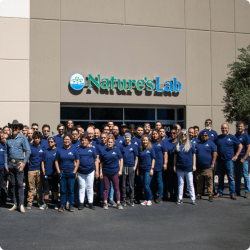
Top Nutrients for Heart Health
February is heart health month, and we’re taking advantage of this opportunity to bring more awareness to the hardest-working muscle in the body: the heart.* Unlike other muscles, it works constantly throughout the day without rest, with the typical heart beating 2.5 billion times over the average lifetime. That’s why it’s important not to skip a beat with your heart health regimen.* While proper nutrition and regular exercise can contribute to a healthy heart, supplementing your wellness regimen may also positively impact heart health.* This blog looks at our top nutrient picks for a happy, healthy ticker.*
CoQ10

CoQ10, or Coenzyme Q10, is a powerful nutrient that occurs naturally in the body. Coenzymes, such a CoQ10, help enzymes work to efficiently support muscle health, including heart and skeletal muscles.* This nutrient, which also acts as an antioxidant, can also be found in some foods (such as organ meats, fatty fish, broccoli, oranges, cauliflower and legumes), though many healthy individuals produce enough CoQ10 naturally.* Certain factors, however, such as age or the use of statin medications (a class of inhibitors that help support healthy cholesterol levels), can cause CoQ10 levels to decrease.* CoQ10 works to help cells produce energy throughout the body, and is found in the highest concentrations in cells of organs that require large amounts of energy, such as the heart.* Because it also functions as an antioxidant, CoQ10 can help protect cells from damaging free radicals.* For individuals who take statin medications, CoQ10 supplementation can help support healthy levels of this nutrient in the body.* Try Nature’s Lab CoQ10 200 mg, and shop our entire selection of products formulated with CoQ10.
Acetyl L-Carnitine
Carnitine is the generic term for compounds including l-carnitine, acetyl l-carnitine, and propionyl L-carnitine. Similar to CoQ10, L-carnitine is produced in the body (specifically the liver) and plays a role in energy production and heart health.* L-carnitine is an amino acid needed to transport fats into cells to turn them into useable energy for the body, which may support heart health by providing healthy energy levels.* Acetyl L-carnitine, similarly, functions the same way as L-carnitine to support heart health, but can also cross the blood/brain barrier to support brain health, too.* Try Nature’s Lab CoQ10 + Alpha Lipoic Acid + Acetyl L-Carnitine to support heart health and cognitive function.*
Fiber
 Dietary fiber plays an important role in many aspects of nutritional wellness; everything from healthy cholesterol, proper digestion, blood sugar regulation, weight management and more can be supported by a diet containing both soluble and insoluble fiber.* Soluble fiber, such as fiber found in beans, oats, flaxseed and more, can help support healthy cholesterol levels, blood pressure regulation and promote a healthy inflammatory response, all which can contribute to heart health.* If you’re looking to
Dietary fiber plays an important role in many aspects of nutritional wellness; everything from healthy cholesterol, proper digestion, blood sugar regulation, weight management and more can be supported by a diet containing both soluble and insoluble fiber.* Soluble fiber, such as fiber found in beans, oats, flaxseed and more, can help support healthy cholesterol levels, blood pressure regulation and promote a healthy inflammatory response, all which can contribute to heart health.* If you’re looking to  add more soluble fiber to your diet, try supplementing with Nature’s Lab Organic Chia Seeds. This raw, unprocessed, whole-grain food contains omega-3 fatty acids, antioxidants, protein and amino acids in addition to 5 grams of dietary fiber per serving.*
add more soluble fiber to your diet, try supplementing with Nature’s Lab Organic Chia Seeds. This raw, unprocessed, whole-grain food contains omega-3 fatty acids, antioxidants, protein and amino acids in addition to 5 grams of dietary fiber per serving.*Omega-3 Fatty Acids
Omega-3 fatty acids are a key family of polyunsaturated fats. Considered essential fats (fats the body cannot create on its own), they’re important to healthy tissue function throughout the body.* These fatty acids work together with diet and exercise to support low triglyceride levels in the blood. Triglycerides are a type of fat in the blood, and high levels may correlate with adverse effects on heart health.* Foods high in omega-3 include fish, vegetable oils, nuts and leafy vegetables, but omega-3 fatty acids from fish contains EPA (eicosapentaenoic) and DHA (docosahexaenoic) fatty acids. These highly unsaturated fats have been linked to healthy triglyceride levels and blood pressure regulation to support heart health.* Try Nature’s Lab Triple Strength Omega-3 Fish Oil with EPA and DHA containing 1500 mg of omega-3 fatty acids (1300 mg derived from EPA and DHA).
Magnesium

Magnesium is one of the most abundant macro minerals in the body and the second most abundant element inside human cells. Magnesium supports over 300 enzyme-driven bodily functions and is needed in large amounts by the body.* Magnesium works closely with calcium to support heart health by creating a balance to contract and relax heart muscles.* Magnesium also supports enzymes involved in the sodium-potassium pump, a process that happens in many cell membranes and moves sodium and potassium ions in opposite directions to regulate electrical impulses and support cardiovascular health.* Obtain magnesium through foods like nuts, avocado, dark chocolate, legumes, seeds and tofu, and try Nature’s Lab Magnesium Glycinate for additional magnesium support.* Shop all supplements containing magnesium here.
Resveratrol
Resveratrol is a plant compound that acts as an antioxidant.* These plant compounds, known as polyphenols, can help protect the body against environmental stress, toxins and cell-damaging free-radicals.* Free-radicals interact with other molecules and may damage cells by causing oxidative stress.* Antioxidants may help stabilize these free radicals.* Because of these antioxidant properties, reservatrol may help support healthy blood pressure levels to support heart health and arterial health and pressure.* Resvertrol may also help the body produce more nitric oxide to further support blood pressure by helping blood vessels to relax.* Try Nature’s Lab Resveratrol Ultra, which contains 250 mg of resveratrol as well as red wine extract, grape seed extract, and green tea extract to promote antioxidant and heart health.*
Looking for more heart healthy supplements? Click here to shop our heart health collection.
This article is for informational purposes only. It is not, nor is it intended to be, a substitute for professional medical advice, diagnosis, or treatment and should never be relied upon for specific medical advice. To the extent that this article features the advice of physicians or medical practitioners, the views expressed are the views of the cited expert and do not necessarily represent the views of Nature's Lab or its affiliated brands.












